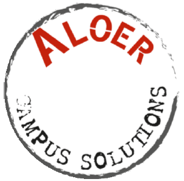Against a backdrop of tight recruitment, increasingly complex raw materials supplies and growing supply chain issues, both companies and employees need to remain efficient and adaptable.
In addition to initial training, vocational training is a mean to enable companies and their employees to deploy their competitive advantages and adapt to organizational and technological changes in the marketplace.
Bearing in mind that training enables us to mobilize our employees and develop their shared vision of the business and the sector from the same perspective, we have developed our training offer around 5 themes:

Supply Chain Management
“To lead a supply chain project, you must first and foremost master its common language”

IT Expertise
“Mastering IT tools for supply chain processes is a guarantee of performance”

Logistics
“Ensure customer delivery with a good understanding of the various warehouse activities”

Lean Management
” Discover the lean workstreams and tools that facilitate the continuous improvement of your company’s workflows”

Project Management
” The keys to a project delivered on time, on budget and with defined resources”

Customized training
ALOER’s Supply Chain training expertise
At ALOER, training is an integral part of our ERP and Supply Chain software integration missions.
We have implemented over 120 projects worldwide and trained all key-users on the associated Supply Chain software modules.
Based on these experiences, we have developed concrete, operational training courses to help your supply chain staff improve their skills.
Deliberately practical rather than theoretical, our training courses are illustrated by real-life cases from industry to distribution.
Our training courses enable us to equip our customers over the long term, providing them with the keys to the business that will support the accelerating pace of change in their industry.
ALOER is listed on the French DataDock, the reference platform for quality referencing of training organizations.
Datadock accreditation confirms the quality of the training provided by ALOER Consultants and the professionalism of its teaching team and training consultants.
Our trainers
Our firm and our certified training consultants can help you improve your skills and competitiveness.
They are based on 4 pillars to ensure the best quality of knowledge transmission:
- Pedagogy
- Expertise
- Support
- Small groups
The importance of professional Supply Chain training
The difficulty of finding profiles with the right supply chain skills motivates us to train the various players involved.
In addition to the skills shortage, the changes inherent to the business and the new issues emerging in the supply chain are strong incentives to turn to alternative means.
Training to help employees grow and develop their professional skills is an excellent lever.
ALOER’s training programs are designed to helpemployees adapt to their workstations, to changes in their professions and to develop their skills:
- acquire a higher qualification related to their job
- anticipate to replace a competent resource (prior to departure)
- in-house skills availability
Training is also very much in demand when starting up a new project , so that teams can tackle any challenge.
Professional training also helps employees to exploit the full potential of software and new technologies. In this way, lifelong learning becomes crucial to evolve in a world of perpetual evolution.
Finally, to avoid being left behind by the competition, training makes it easier to adapt to change and consolidate the company’s competitive advantage.
Thanks to our pragmatic, field-oriented training courses, your employees are ready to face the challenges of the business world, supply chain, logistics and ERP.
The importance of Supply Chain professions
Committed to the enhancement and promotion of Supply Chain professions — see in particular the series of Interviews Passion Supply Chain series, ALOER plays an active role in the ongoing training of players in the sector.
Top management and finance departments now have a pressing need to better understand supply chain issues and their impact on performance indicators.
An efficient supply chain not only reduces costs, but also preserves the company’s working capital requirements.
As a bonus,training your employees is a way of enhancing your company’s image:
- developing employees’ knowledge contributes to their job satisfaction,
- High-performing employees convey a positive image both internally and with customers, and build talent loyalty.
Training is an excellent way to support and encourage your teams.
ALOER also applies this model to the skills development of its own teams.

The objectives of our Supply Chain training courses
Training for all:
- directions,
- supply chain operations,
- warehouse and logistics operators
- in-house project leaders
- …
We also provide cross-disciplinary training across the entire spectrum of supply chain professions:
- from procurement to warehouse management
- through S&OP and forecasting,
- scheduling and planning.
We also pay particular attention to exchanges between trainees and trainers. That’s why we prefer small groups limited to 6/8 people.
ALOER is also committed to ongoing training for its employees throughout their careers. We contribute to the professional development of our consultants by giving them access to new knowledge.
The objective? Develop their know-how as well as their interpersonal skills in all our areas of expertise.
Our professional training courses do not award a diploma, but a certificate proving participation and validation of prior learning.
Who can benefit from ALOER’s training courses?
Whatever …
- your initial training or specialization (master’s degree in management, economics, transport and logistics, international trade),
- your level of study (Grandes Ecoles or university, all RNCP 2, 3 or 7 grades),
- your professional and industrial experience (retail, logistics, supply chain, accounting, etc.),
… we have the right Supply Chain Management training.
All our training courses contribute to the ongoing training of your company’s employees.
Supply Chain Fundamentals training
Our Fundamentals courses have no prerequisites. Their aim is to teach the basics of the Supply Chain, and to establish the specific terminology of the Supply Chain — acronyms, use of terms (French/English), etc. — that are used in the supply chain. In fact, it’s a good idea to start by sharing a common vocabulary to familiarize ourselves with the concepts.
That’s why our training courses also define and/or remind us not only of the terms, but also of the roles of each Supply Chain player and their interactions within the company: this knowledge is a prerequisite for overall performance.
Practical details : duration, rates, costs (travel, accommodation, catering, room hire…) are detailed in our brochures.
Specialized training
Training courses (except for the fundamentals) are subject to different prerequisites depending on the course.
The most common prerequisite is a basic knowledge of the subject on which you are to be trained. This could be basic ALOER training, or a proven track record in your position or hierarchical rank in your company.
The course presentation sheets give a precise summary of the prerequisites required for each course.
So whether you want to make progress with Lean, Supply Chain or to develop your skills in information systems or project management, take a look at our training sheets.
Customized training
If you would like a customized training course:
- dedicated to your own issues?
- grouping 2 topics in one?
Together, we will design a training module to meet your specific needs and expectations.
Our customized training approach is detailed here (hyperlink).
Inter-company and in-company training
- In-company training: exclusively for your employees. It is designed to meet the specific needs of your organization
- Inter-company training: brings together employees from different companies and sectors
In-company training — initiating improvements together
In-company training offers many advantages in terms of price, content, organization…
1. Optimize your training budget
- In-company training limits your company’s expenses. By hosting the trainer on your premises, you can avoid travel and accommodation costs for your trainees.
2. Choose date and location
- The company chooses its own training date(s): this allows it to control the format and integrate training into employees’ schedules without disrupting ongoing projects with imposed dates.
3. Customize your training
- In-company training can be fully customized and adapted to a specific problem encountered by your teams, your company or your sector of activity.
- Sessions are adapted to the number of participants (from 1 to 8 people) and their level of knowledge (departments, management, beginners or experts, etc.).
4. Confidentiality of exchanges
- All exchanges and data (case studies, examples, etc.) are protected by professional secrecy and confidentiality clauses.
5. Employee skills
- The in-company format ensures that employees develop their skills by putting into practice the knowledge they have acquired and adapting it to the specific problems of your organization.
- It provides an opportunity to learn about best practices in the sector and to keep abreast of new business technologies.
Inter-company training: sharing experience as a bonus
Would you like to follow a training course while exchanging ideas with your peers from other companies?
Inter-company training is for you. This formula offers several advantages for both trainees and companies. Such as outsourcing your entire organization, or benefiting from the experience, knowledge and skills of other employees.
A real opportunity to exchange best business practices, they bring together professionals who, like you, are keen to grow in one or other of the themes proposed. The best practices implemented elsewhere are a source of enrichment and an asset for your company’s development.
Face-to-face supply chain training or distance learning?
With a large number of customers located internationally, our consultants are accustomed to distance learning.
What’s more, our teaching method ensures that trainees in distance learning sessions are just as well trained as in face-to-face sessions.
Face-to-face training
Face-to-face training is the traditional training method. This format is reassuring for participants, and from experience encourages more exchanges.
Distance learning or online training
With distance learning, there’s no need to commit your budget (catering, accommodation, room hire, etc.).
Multilingual training: French and English
ALOER is based in Lyon, France. Thanks to our international activities, we can train your employees in English and French.
We can also provide training in Spanish on certain subjects, thanks to the native bilingualism of some of our consultants.
